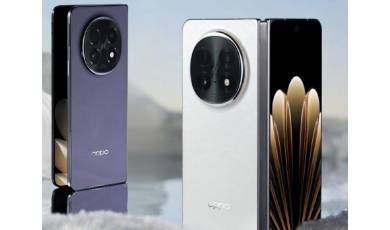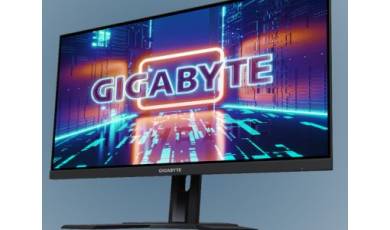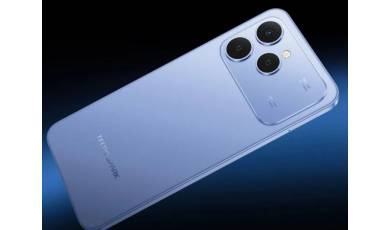ZTE Nubia Z20 specs.
Mobiles >> ZTE >> ZTE Nubia Z20| Specifications | Reviews | Secret codes |
| Unlock phone | Root phone |
| Backup | Flash Firmware | Screenshot |
| Hard Reset |

Basic Spec ZTE nubia Z20
Smart Phone OS: An operating system (OS) is software that interacts between a user and a smartphone.
An operating system (OS) is software that interacts between a user and a smartphone.
Android 9.0 (Pie); Nubia UI 7
Chipset: Is a set of chips in the smartphone that control the CPU.
Is a set of chips in the smartphone that control the CPU.
Qualcomm SM8150 Snapdragon 855+ (7 nm)
CPU: Central processing unit
Central processing unit
Octa-core (1x2.96 GHz Kryo 485 & 3x2.42 GHz Kryo 485 & 4x1.78 GHz Kryo 485)
GPU: Graphics Processing Unit
Graphics Processing Unit
Adreno 640 (700 MHz)
Display ZTE nubia Z20
Type:
AMOLED capacitive touchscreen, 16M colors
Screen Size: This diagonal display size is usually measured in inches.
This diagonal display size is usually measured in inches.
6.42 inches, 101.2 cm2 (~84.7% screen-to-body ratio)
Screen Resolution: Screen resolution refers to the size of the image received on the screen in pixels
Screen resolution refers to the size of the image received on the screen in pixels
1080 x 2340 pixels, 19.5:9 ratio (~401 ppi density)
Protection:
Corning Gorilla Glass 5
Storage ZTE nubia Z20
Card slot:
No
Internal:
128GB 6GB RAM, 128GB 8GB RAM, 512GB 8GB RAM Random Access Memory
Random Access Memory
Main Camera ZTE nubia Z20
Triple camera:
48 MP, f/1.7, 26mm (wide), 1/2.0", 0.8µm, PDAF, OIS
8 MP, f/2.4, (telephoto), 3x optical zoom
16 MP, f/2.2, 12mm (ultrawide), 1/3.1", 1.0µm, AF
8 MP, f/2.4, (telephoto), 3x optical zoom
16 MP, f/2.2, 12mm (ultrawide), 1/3.1", 1.0µm, AF
Features:
Dual-LED dual-tone flash, second soft flash, HDR, panorama
Video:
4320@15fps, 2160p@30/60fps, 1080p@30/60fps, 720p@1920fps
Selfie camera ZTE nubia Z20
Triple camera:
Uses main cameras
Features:
Dual-LED dual-tone flash, HDR, panorama
Video:
4320@15fps, 2160p@30/60fps, 1080p@30/60fps, 720p@1920fps
Sound ZTE nubia Z20
Loudspeaker:
Yes
3.5mm jack:
No
Network connectivity ZTE nubia Z20
Technology:
GSM / CDMA Code Division Multiple Access / HSPA
Code Division Multiple Access / HSPA High Speed Packet Access / EVDO
High Speed Packet Access / EVDO Evolution-Data Optimized / LTE
Evolution-Data Optimized / LTE
2G: Second generation cellular network
Second generation cellular network
GSM 850 / 900 / 1800 / 1900 - SIM 1 & SIM 2
3G: Third generation cellular network
Third generation cellular network
HSDPA High-Speed Downlink Packet Access 850 / 900 / 1700(AWS) / 1900 / 2100
High-Speed Downlink Packet Access 850 / 900 / 1700(AWS) / 1900 / 2100
4G: Fourth generation cellular network
Fourth generation cellular network
LTE band 1(2100), 2(1900), 3(1800), 4(1700/2100), 5(850), 7(2600), 8(900), 18(800), 19(800), 20(800), 26(850), 34(2000), 38(2600), 39(1900), 40(2300), 41(2500) - EU/Asia
Speed:
HSPA High Speed Packet Access 42.2/5.76 Mbps, LTE-A (6CA) Cat18 1200/150 Mbps
High Speed Packet Access 42.2/5.76 Mbps, LTE-A (6CA) Cat18 1200/150 Mbps
WLAN: Wireless Local Area Network
Wireless Local Area Network
Wi-Fi 802.11 b/g/n/ac, dual-band, Wi-Fi Direct, DLNA, hotspot
Bluetooth: Bluetooth is used to exchange data between nearby mobile devices.
Bluetooth is used to exchange data between nearby mobile devices.
5.1, A2DP, LE
GPS: Global Positioning System
Global Positioning System
Yes, with dual-band A-GPS, GLONASS GLObal NAvigation Satellite System, BDS, GALILEO
GLObal NAvigation Satellite System, BDS, GALILEO European Global Navigation Satellite System
European Global Navigation Satellite System
Radio:
No
USB: Universal Serial Bus
Universal Serial Bus
Type-C 1.0 reversible connector, USB On-The-Go
Phone features ZTE nubia Z20
Sensors:
Dual fingerprint, accelerometer, gyro, proximity, compass
Battery ZTE nubia Z20
Battery:
Non-removable Li-Po 4000 mAh battery
Charging:
Fast battery charging 27W
USB Power Delivery 2.0
USB Power Delivery 2.0
Size ZTE nubia Z20
Dimensions:
158.6 x 75.3 x 9 mm (6.24 x 2.96 x 0.35 in)
Weight:
186 g (6.56 oz)
Build:
Glass front (Gorilla Glass 5), glass back (Gorilla Glass 5), aluminum frame
SIM:
Dual SIM (Nano-SIM, dual stand-by)
Comments, Questions and Answers about ZTE Nubia Z20
Ask a question about ZTE Nubia Z20





